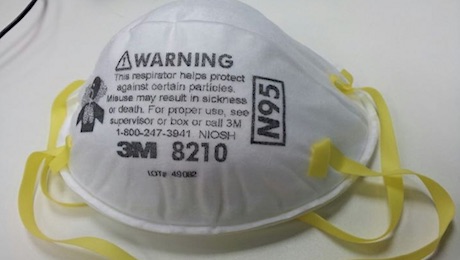By Bethany Blankley | The Center Square
The White House Coronavirus Task Force and others have pointed to the resilience of the American people, and specifically, companies and businesses that are stepping up to help local, state, and federal agencies combat the spread of the coronavirus.
Peter Navarro, assistant to the president for manufacturing and trade policy, and director of the Office of Trade and Manufacturing Policy (OTMP), says several manufacturing companies have escalated production of necessary medical equipment with the aid of fast-tracking regulatory approval.
The multinational company Honeywell is manufacturing millions of N95 masks per week, after a fast-tracked approval by the Department of Health and Human Services (HHS). The company produces aerospace systems, industrial products, and engineering services and is based in Charlotte, North Carolina.

3M has produced nearly 100 million N-95 masks every month since the start of the COVID-19 outbreak, the company says, with more than 35 million a month being produced in the U.S.
It scaled up its Smithfield, Rhode Island, facility adding 500 new jobs, and submitted a second proposal to manufacture masks at a factory in Arizona.
The Pentagon’s Defense Threat Reduction Agency has been coordinating military flights to pick up test swab kits and distribute to various cities. It has been doing so in coordination with FedEx. In a recent trip, the Pentagon and FedEx distributed 800,000 swabs to several cities within 72 hours, the OTMP reports.
With approval from the Food and Drug Administration (FDA) and HHS, Pernod Ricard, a French company that produces alcoholic beverages, is producing hand sanitizers on a massive scale. The company plans to donate roughly 4,000 gallons a week to the Federal Emergency Management Agency (FEMA) for distribution across the country. The hand sanitizers are being produced in U.S. factories in Arkansas, Kentucky and elsewhere.
The OTMP is also coordinating a major effort with the National Association of Manufacturers, including 40 companies providing ventilators and vital-sign monitors, test kits, gloves and protective suits to state and local governments and hospitals.
The National Council of Textile Organizations and textile companies, Parkdale Mills and Hanes, are working with a broad consortium of manufacturers in order to produce millions of N-95 masks, the council announced. The coalition said once it reaches full capacity in roughly 4 to 5 weeks, it expects to produce up to 10 million masks a week, “for the greater good of a nation facing one of its most monumental challenges.” Their efforts also include repurposing factories and flying in raw materials.
The masks are believed to be the most protective products for healthcare workers who are the most prone to being exposed to airborne particles and liquid contamination.
Vice President Mike Pence said private companies have “greatly increased, by the tens of millions, their production of the masks to help healthcare workers dealing with COVID-19.”
Because of a public-private partnership with the multinational conglomerate corporation 3M, 35 million N-95 masks were made available last week. The company also said Monday it is sending 500,000 masks to New York and Seattle in response to the ongoing shortage of health-care equipment. 3M has produced nearly 100 million N-95 masks every month since the start of the COVID-19 outbreak, the company says, with more than 35 million a month being produced in the U.S.
The technology giant Apple also pledged to donate 2 million N-95 masks, President Donald Trump said.
The Centers for Disease Control and Prevention (CDC) does not recommend that the general public wear N95 respirators to protect themselves from respiratory diseases, including coronavirus (COVID-19). The best way to prevent illness is to avoid being exposed to this virus, it states. The CDC recommends everyday preventive actions, like regularly washing hands, to help prevent the spread of respiratory diseases.
“For the general American public, there is no added health benefit to wear a respiratory protective device (such as an N95 respirator), and the immediate health risk from COVID-19 is considered low,” it states.
Other technology giants like IBM, Google, Amazon and Microsoft are working with the White House, several universities and national labs, to make available supercomputing resources related to finding treatments or cures for the coronavirus.
IBM’s research director, Dario Gil, said in a recent blog post that its supercomputer based at Oak Ridge National Laboratory has enabled researchers to “to screen 8,000 compounds” to identify those that are most likely to bind to a key protein of the virus and block its ability to infect cells. Gil said they initially found 77 promising small-molecule drug compounds to actually test.
Yext, a technology company, also built a website for the New Jersey state government within 24 hours to serve as an online hub for coronavirus information. The company says it will do the same for other governments as well.



Fulflex of VT in Brattleboro makes the rubber straps and other parts used in the N95 masks. They have been working round the clock to supply 3M and others for months.